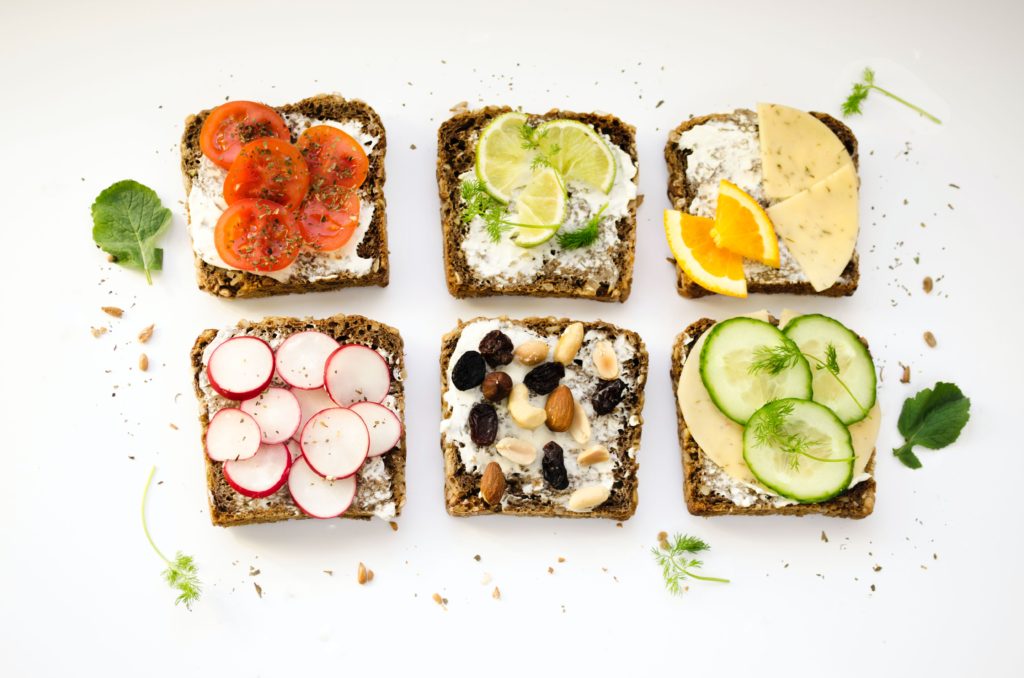
Intermittent fasting has taken the health and fitness world by storm. Nutritionists love it. Celebrities like Gisele Bunchen and Jennifer Aniston swear by it. It has proven to be a powerful way of shedding stubborn pounds but the benefits don’t end there. Studies have found that fasting can protect against disease, sharpen your intellect and help you live longer.
Sign us up!
Disclaimer: this post may contain some affiliate links. When you make purchases through my links, I may earn a small commission at no extra cost to you. Thank you so much for your support!



What is intermittent fasting?
Simply put, intermittent fasting is an eating pattern. There are no rules about what you can and can’t eat – only when.
The process involves following a schedule of alternating eating and fasting periods. A popular pattern is to fast for sixteen hours a day, leaving you with an eight-hour window in which to consume your meals. No food group is off limits but as always, it’s best to eat a healthy, balanced diet.
Sure, going without food for that long sounds daunting but human beings have fasted for thousands of years. Our prehistoric ancestors didn’t eat three square meals a day – they had to fast for long periods of time. Throughout history, natural selection favored those who were able to last without food for days on end. Our bodies are more suited to it than you might think.
Not only does intermittent fasting make you less likely to overeat, it can also give your metabolism a serious boost. Your body uses food for fuel, but when you’re fasting it doesn’t have that option. It begins to break down fat instead, leading to weight loss.


Ways of intermittent fasting
There’s no one right or wrong way of intermittent fasting – it’s all about choosing a plan that works for your lifestyle. Some plans break the day into eating and fasting windows, whilst others recommend fasting for entire days.
16:8
The 16:8 ratio is one of the most popular ways of intermittent fasting, and it’s a good introduction for beginners.
Sixteen hours sounds like a long time to go without food, but if you’re getting enough sleep then you’ll be unconscious for at least half of that time. It could be as simple as eating your last meal four hours before bedtime and eating a late breakfast the next day.

The Warrior Diet
The Warrior Diet lies on the more extreme end of the intermittent fasting scale. It involves fasting for twenty hours per day and eating for just four. However, it’s not a complete fast as you’re allowed to consume clear broth, cottage cheese and raw fruit and veg at any time. This diet has been lauded for helping to boost mental sharpness and energy levels, but its strict nature means it’s not for everyone.

The 5:2 Diet
The 5:2 diet is another popular intermittent fasting method. It requires you to choose two non-consecutive days per week when you consume no more than 500 calories, known as your “fast days.” For the rest of the time, you’re free to eat however you like, although between 1,500-2,000 calories is the recommended amount for weight loss.

Eat – Stop – Eat
This method of intermittent fasting involves full 24-hour fasts twice a week. It’s certainly more difficult but some dieters enjoy the discipline involved. With clear cut boundaries, there’s less chance you’ll fall prey to a “just thirty minutes more…” mindset.


How does intermittent fasting help you to lose weight?
Studies have shown that intermittent fasting can be just as effective – if not more so – than counting calories when it comes to losing weight. In fact, a review of 40 studies showed that intermittent fasting helped participants lose, on average, between 7-11lbs over a 10-week period.

Intermittent fasting helps you to eat less
There are several ways in which intermittent fasting can aid weight loss, in conjunction with a balanced diet.
For one thing, less time to eat = fewer calories consumed. If you’re eating three meals in an eight hour period, rather than over the course of twelve or more hours, you’re probably going to feel fuller and be less tempted to overindulge.

Intermittent fasting boosts your metabolism
Short-term fasts help your body to produce more fat-burning hormones, such as Human Growth Hormone (HGH) and Norepinephrine. In fact, the body produces up to five times as much HGH during a fast! This hormone preserves lean muscle mass whilst torching fat, helping you achieve your fitness goals faster.
If that weren’t enough, intermittent fasting also helps to lower your insulin levels. It can even be more effective than counting calories! Insulin stops the body from breaking down fat, so the lower your insulin levels, the easier it is to lose weight.

Other health benefits of intermittent fasting
Intermittent fasting isn’t just about slimming down. It offers an array of powerful health benefits, such as lower cholesterol levels and increased brain power.
Reduced Risk of Diabetes
Intermittent fasting lowers your insulin levels and decreases your body weight, significantly reducing your risk of developing Type 2 diabetes. In fact, small studies have suggested that intermittent fasting may be able to reverse diabetes in those who already have the condition, which is nothing short of amazing.

Heart Healthy
Intermittent fasting can lower blood pressure and cholesterol levels, which are major factors of heart disease. It’s also more effective at lowering the level of triglycerides – dangerous fatty acids – in the blood than a regular calorie-restriction regime.
Intermittent Fasting Helps You Focus
Need to focus? Intermittent fasting boosts mental clarity. Studies show that it can increase the production of BDNF in the brain by anywhere between 50-400%.
What is BDNF, you ask?
It’s a wonder protein that helps your brain cope with stress. It helps produce new cells and create new synapses. In layman’s terms: it improves your memory, aids learning and lifts your mood.
Think about it: many religions advocate fasting in one way or another. Monks fast to clear their mind and connect with their spirituality. Many cultures hail fasting as a powerful way to sharpen focus and heighten the senses. And now there’s science to back it up!

Intermittent Fasting Reduces the Risk of Alzheimer’s Disease
There’s increasing evidence to suggest that intermittent fasting can prevent Alzheimer’s disease. Intermittent fasting improves cognitive function, prevents the degeneration of brain cells and reduces inflammation. Studies have also shown a pattern of fasting to be effective in protecting mice against the disease. Further research upon the human brain is needed but the science looks promising so far.

Intermittent fasting and keto
The wildly popular keto diet is even more effective when combined with an intermittent fasting pattern. It can help dieters reach a state of ketosis more quickly, delivering speedy results.
One of the main health concerns of the keto diet is that it can raise cholesterol levels. Intermittent fasting can help to offset this side-effect, whilst helping dieters drop fat faster than ever before. Sounds like a win-win if you ask us!


How to get started
If you want to give fasting a go (and why wouldn’t you?) but are worried it will prove too difficult, my advice would be to ease into it. Start with a more manageable plan and create a ‘beginner phase’ for yourself.
Here are some ideas:
- If you like the sound of the 16:8 plan, ease yourself in by adjusting the ratio slightly. For the first week, you could try fasting for fourteen hours and eating for ten. A pattern like this could just mean waiting an hour before eating breakfast or having dinner a little early. Once you feel comfortable with the 14:10 ratio, adjust it slowly until 16:8 becomes the norm.
- Think the 5:2 diet could work for you? Start by fasting for just one day each week until your body gets used to it.
- Drink plenty of tea, coffee and water throughout the day to suppress your appetite.
- Be kind to yourself. Remember that your body needs to adapt. Fasting days are hard at first, but they won’t always be a struggle.
- Use a timer or app to track your progress. Keeping on top of your timings is the secret to success!
The Zero appis popular and better yet, free!


Further resources
You’re ready to fast your way to a healthier body, but checking out extra resources is always a good idea. Here’s a pick of the best books about intermittent fasting to help you make the healthiest choices for your body.
Now that your body and brain are in tip-top shape, why not check out my article on the world's best luxury wellness destinations?

 JavaScript is currently disabled in this browser. Reactivate it to view this content.
JavaScript is currently disabled in this browser. Reactivate it to view this content.


[…] nourishing whole foods that provide you with energy and make you feel good. You could always try an intermittent fasting eating pattern to give you that extra […]
[…] you’d like to incorporate intermittent fasting into your wellness retreat, this article may prove […]
[…] may remember my article on intermittent fasting. Whilst following an eating pattern can help with weight management, eating late at night does not […]